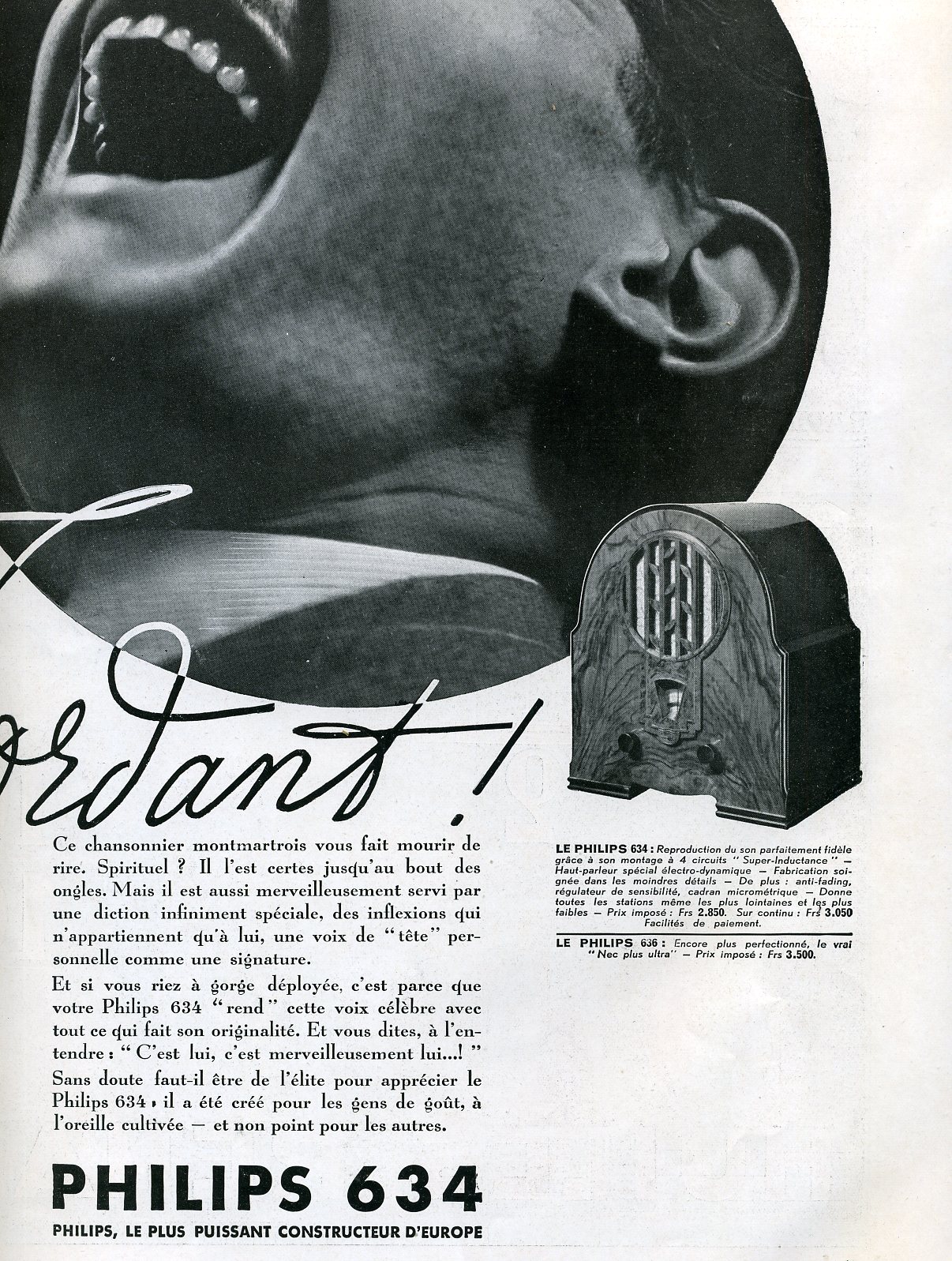Philips

Koninklijke Philips Electronics N.V. (Royal Dutch Philips Electronics Ltd.), usually known as Philips, is one of the largest consumer electronics producers in the world. In 2004, their sales were € 30.3 billion and they employed 161,586 people in more than 60 countries. Philips is organized in a number of divisions: Philips Consumer Electronics, Philips Semiconductors, Philips Lighting, Philips Medical Systems and Philips Domestic Appliances and Personal Care.
The company was founded in 1891 by the brothers Gerard and Anton Philips (1874-1951) in Eindhoven, the Netherlands. Their first products were light bulbs 'and other electrotechnical equipment'. Their first factory remains as a museum. In the 1920s, the company started to manufacture other products, and in 1939 their first electric razor, the Philishave, was introduced. Philips introduced the compact audio cassette tape, which was wildly successful, though their attempt to set a standard for video cassette recorders, the V2000, was unsuccessful in the face of competition from the Betamax and especially VHS standards.
On the 9th of May 1940, the Philips directors were informed about the German invasion of the Netherlands on May 10th. They decided to leave the country and flee to the United States. They took a large amount of the company capital with them. Operating from the US, they managed to run the company throughout the war. At the same time, the company itself was moved to the Netherlands Antilles (on paper) to keep it out of German hands. Later it was moved back to the Netherlands, with their headquarters in Eindhoven (and in 1997 the decision was made to move to Amsterdam - the move was completed in 2001). Many secret research facilities were locked and succesfully hidden from the invaders, which allowed the company to get up to speed again quickly after the war.
It is also believed at the same time that Philips has both before and during the war supplied enormous amounts of electric equipment to the German occupier, which has led some people to think that they have basically collaborated with the Nazis, like many German firms in their day. However, there is no reason to assume that Philips itself or its management ever sympathized with the Nazis or their ideologies. Clearly, there is little Philips could have done to prevent the Germans from abusing their production facilities and forcing their employees to perform slave labor during the occupation.
Major products

In 1963, Philips introduced the Musicassette, or "compact audio cassette".
In 1972, Philips introduced the laserdisc player, using technology invented already in the 1960s.
In 1978 Philips introduced the Philips G7000, a videogame console that was released in the US as the Magnavox Odyssey 2.
In 1983, Philips launched the compact disc in partnership with Sony.
In 1992, Philips launched the ill-fated Digital Compact Cassette format.
In 2003, Philips successfully launched the coffeemaker Senseo across Europe. Its ingenious concept is to provide high quality coffee cups from custom-made pads. The "original" Senseo pads are produced by Douwe Egberts. Since 2005, the Senseo is also available in the US.
In 2004, Philips abandoned the slogan "Let's make things better" in favor for a new one : "Sense and Simplicity".
ASM Lithography is a spin-off from a division of Philips.
Past and present CEO:
- 1891–1922: Gerard Philips
- 1922–1939: Anton Philips
- 1939–1961: Frans Otten
- 1961–1971: Frits Philips
- 1971–1977: Henk van Riemsdijk
- 1977–1981: Nico Rodenburg
- 1982–1986: Wisse Dekker
- 1986–1990: Cornelis Van der Klugt
- 1990–1996: Jan Timmer
- 1996–2001: Cor Boonstra
- 2001 to date: Gerard Kleisterlee
Companies acquired by Philips through the years include Magnavox, Signetics, Mullard, VLSI, and portions of Westinghouse. Philips does not own what was GTE Sylvania as some may think as that name is now owned by the light bulb division of Siemens AG.
Philips also owns the naming rights to Philips Arena in Atlanta.
In 1913, to celebrate the Dutch 100 years of independence from France, Philips founded a sports club for its employees. The club was called Philips Sport Vereniging, or PSV Eindhoven, as it is now known.
External link
- Philips on the Internet
- Philips Semiconductors
- Philips Research
- Petition to get Shirley's early recordings released
